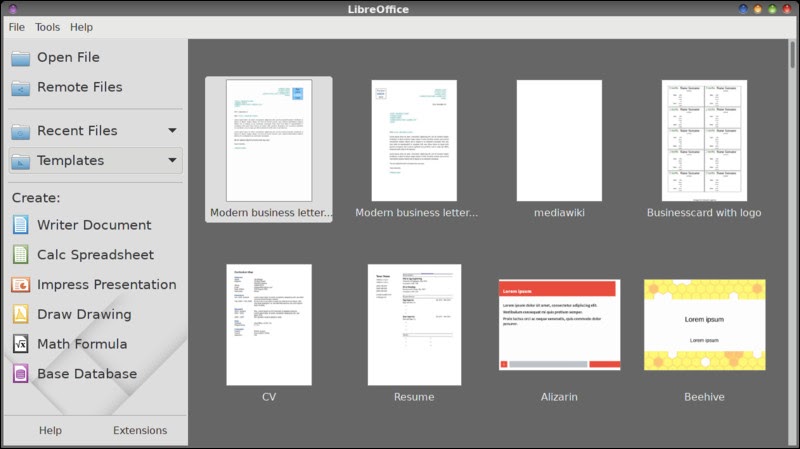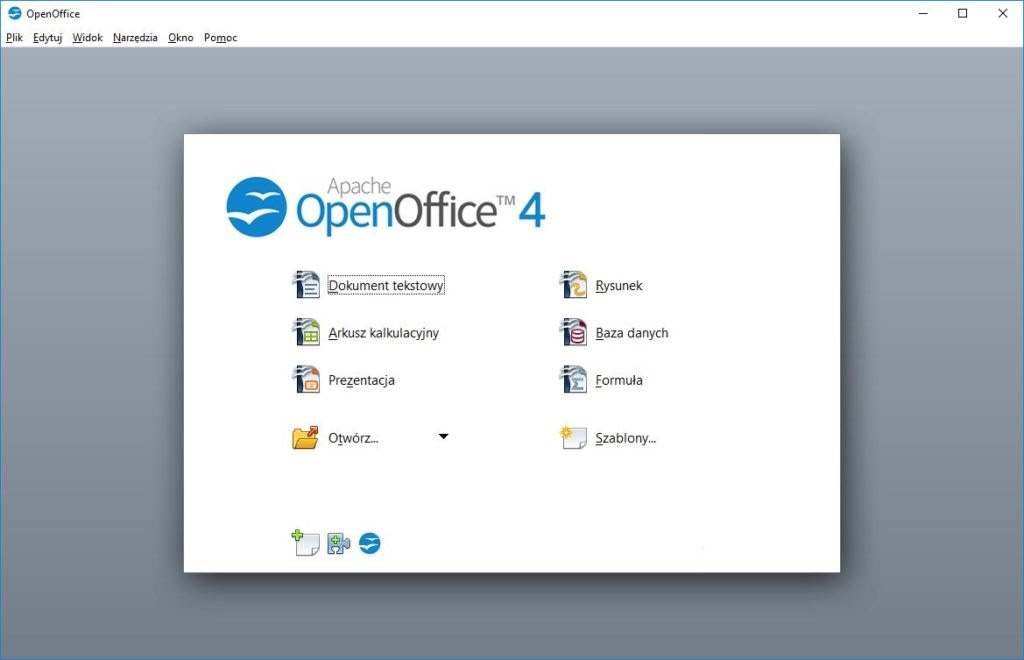| Previous
Page |
PCLinuxOS
Magazine |
PCLinuxOS |
Article List |
Disclaimer |
Next Page |
The Document Foundation Calls On Apache OpenOffice To Work Together |
|
by Paul Arnote (parnote)  Background & History Twenty years ago, in 2000, the OpenOffice (OO.org) source code was open sourced by Sun Microsystems. I remember it well. Back then, in my naivete as a Windows user, I was excited about the announcement. It wasn't as a contributor or programmer, but I was excited about the growth potential for an office suite other than Microsoft Office, which has/had always been consistently priced out of my reach or budget. In those days, OpenOffice was managed and developed by Sun Microsystems. This was after Sun purchased StarOffice from its German owners in 1999. Prior to that, StarOffice originated as StarWriter in 1985. THEN came along Microsoft's introduction of the OOXML (Office Open XML) document format, which especially created havoc for users of anything other than Microsoft Office. We see them today, represented with the familiar *.docx, *.xlsx and *.pptx file extensions. For quite a while, OO.org users were stymied in their attempts to open, read, or edit OOXML documents. Kludgy extensions and workarounds were presented (from what I remember), but none of them "cured" the problem. Plus, Oracle was incredibly slow to address the issues and concerns over the lack of OO.org users to be able to read these new office document file formats. I remember having to ask users of MS Office (at that time) to PLEASE send me any Office files in the older *.doc/*.xls/*.ppt formats, just to ensure that I would be able to open, read, and possibly edit those files. For a file format that was presented as a unifying force for office documents, it sure seemed to create a LOT of havoc for users of anything that was not Microsoft created or blessed. First Sun's, and then Oracle's (after Oracle purchased Sun Microsystems in 2010) slowness to respond to not just those issues, but also its slow development cycle contributed to OO.org becoming forked into The Document Foundation (TDF), who gave birth to LibreOffice (LO). LO was based on the OO.org source code, with many, many enhancements and new features. This all happened in 2010. In the intervening 10 years, LO has seen phenomenal growth, while Oracle sold OO.org to Apache in 2011, and there it has sat, stagnating for most of that time.  LibreOffice Suite  OpenOffice Office Suite The Document Foundation's Plea On October 12, 2020, The Document Foundation released an open letter to Apache OpenOffice. Here it is, in its entirity: Today marks 20 years since the source code to OpenOffice was released. And today we say: LibreOffice is the future of OpenOffice. Let's all get behind it! It's great to have a rich and diverse set of free and open source software projects. Hundreds of millions of people around the world have benefited from the choice and customisation that they bring. But sometimes, users can lose out when they're not aware of newer alternatives, or when one brand overshadows another. OpenOffice(.org) -- the "father project" of LibreOffice -- was a great office suite, and changed the world. It has a fascinating history, but since 2014, Apache OpenOffice (its current home) hasn't had a single major release. That's right -- no significant new features or major updates have arrived in over six years. Very few minor releases have been made, and there have been issues with timely security updates too.  In recent years, almost all development activity has taken place in LibreOffice, with 13 major releases and 87 minor releases. In 2019, LibreOffice had over 15,000 code commits, while OpenOffice had only 595. LibreOffice has a flourishing community, yearly conferences, professional support options, development and migration certification, and a robust commercial ecosystem. In addition, LibreOffice has integrated many features essential for end users in 2020:
But still, many users don't know that LibreOffice exists. The OpenOffice brand is still so strong, even though the software hasn't had a significant release for over six years, and is barely being developed or supported. If Apache OpenOffice still wants to maintain its old 4.1 branch from 2014, sure, that's important for legacy users. But the most responsible thing to do in 2020 is: help new users. Make them aware that there's a much more modern, up-to-date, professionally supported suite, based on OpenOffice, with many extra features that people need. We appeal to Apache OpenOffice to do the right thing. Our goal should be to get powerful, up-to-date and well-maintained productivity tools into the hands of as many people as possible. Let's work together on that! Signed, The Board of Directors at The Document Foundation Of course, this isn't the first time that TDF has urged Apache OpenOffice to work together. Here is a similar "message" to Apache OO.org to do something similar back in August, 2015. Feel free to read it at your leisure by following the link. The message from TDF is quite consistent, and has been over the years. Analysis I've heard some good arguments from both sides of the issue. The user comments on the TDF website with the open letter to Apache are very insightful and telling. TDF makes a strong case -- and always has -- about letting users who go looking at the Apache OpenOffice website know that something more advanced, more developed and more capable exists with LO. They also make a good case that Apache's lack of continued development, while presenting the Apache OpenOffice 4.1 as current, tarnishes the reputation of not only other open source office suites, but also for open source software as a whole. Meanwhile, others claim that it's good to have choices. But, what choices are there if the code is not maintained, development is slower than snails trying to circumnavigate the Earth, security issues continue to be ignored, and the software resembles abandonware? Even today, virtually all Linux distributions -- PCLinuxOS included -- support and include LO as the default office productivity suite. For a real "slap in the face," even Oracle Linux 6 features LO, instead of OO.org, as its included office productivity suite. And, even setting all of that aside, there are other choices besides Apache OO.org. Ten years later, we have Google Docs, Microsoft Office 365, and Zoho Office Suite, all cloud-based office suite choices that weren't as widely available when TDF forked from the Oracle OO.org project. I think it should be pretty evident, from the 10 years of relative inaction on OO.org by Apache, that their true focus is on their server software market. It's sad and unfortunate that users are ultimately the ones that are hurt in this split. The comments to the TDF open letter between Mike Saunders (from the LO project) and Peter Kovacs (from the OO.org project) illustrate perfectly the rift that remains between the OO.org and LO developers. You'll have to scroll down to read them, but they are not too far down. The exchange starts with the 14th comment in the comment thread. Indeed, it would seem that Apache OO.org is making itself more and more irrelevant the longer they go on without any significant updates. Because it came first and has been around longer, many more people know about it than they do LO. Shockingly, despite having over 200 million estimated users, there are still a lot of people who don't even know that LO exists, even if they know that OO.org exists. The last "update" of Apache OO.org (4.1.7) came over a year ago!? However, it is presented on the Apache OO.org website as though it is a current release. Well, in a way, I guess it IS the most current release, even if it isn't all that current. I'm betting most who download it won't even realize that the "current release" is over a year old. The last "review" of Apache OO.org occurred over THREE years ago. To contrast, LO is currently in it's 7.0 version, most recently updated at the beginning of October, 2020. The LO development cycle has been robust, swift and dynamic. Security issues are dealt with quickly. Overall, LO is much more responsive to its user base. LO makes the perfect choice for a free, open source office productivity suite. Apache OO.org ... probably not so much, any more. OO.org has its place firmly cemented in the pages of the history books. Its time has come and gone. But, due to mismanagement and mostly inactive development, OO.org has been replaced with the new kid on the block, who is hungry and eager. It has been nice knowing you OO.org. Your contribution to making office productivity suites available to the masses, for free, will not be forgotten. But, it's time to help ensure that everyone who looks at your software is aware that there is another office productivity suite available that is undergoing much more robust development, with many more features and enhancements, originating from the very same code base. To do otherwise is to be deceiving, the same as lying by omission. You sully the reputation of reputable open source projects across the world by continuing your deceitful ways. If you, Apache, want to continue to keep and produce OO.org as a separate product, please do. But also let everyone know about the much more capable LO. You should be able to do at least THAT LEVEL of cooperation between two similar and related open source projects, if nothing else. |




